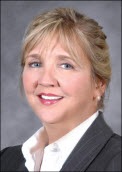Re: Walmart Health: Just had a great dental visit this morning, which was preceded by helpful reminders from Epic, and…
EMR Vendors on HITECH – Part Three of a Series
We asked several vendor executives a series of five questions related to the economic stimulus as it impacts electronic health records.
How is your company defining "meaningful use" of an EHR and how will ensure your customers can reach that level?
Allscripts – Glen Tullman, CEO

It is not our direct role to define “meaningful use” for the government. While the law has given us a sneak peek at what may be required, the new Secretary of HHS will further define the details. Accordingly, we are guiding our clients to understand that in order to collect the HITECH incentives, they will need to demonstrate that they are using a certified, ePrescribing-capable EHR that is connected for the exchange of relevant and appropriate personal health information (PHI) to the systems of other healthcare providers. Additionally, while we will not know for some time – likely not before 2010 – what the requirements will be for reporting on quality care measures (the third component of meaningful use), Allscripts is committed to ensuring that our products make it as simple as possible for our clients to comply with any directive that comes out of HHS at that point. Again, our best advice is for physicians to ensure that they are currently using or about to purchase a CCHIT-Certified Electronic Health Record and that the company they buy it from has the resources to invest in the future and is going to be around for years to come.
athenahealth – Jonathan Bush, CEO, President, and Chairman

We define it as it is currently spelled out in the legislation that was signed – which we also believe will be expanded over time. We are aware of a HIT Policy Committee being formed to put more context to that and we welcome any new criteria that they will want prior to the start of the program and the subsequent years following. Again, anytime more data or the need to report complex data is required it further supports our network-based model. To think over the five year program that CMS won’t want the number of measures and other data sets captured and reported on increased is short sighted. They will and the vendors that are able to keep pace with that beyond just some software upgrade will be the best positioned to assist providers.
eClinicalWorks – Girish Kumar Navani, President

eClinicalWorks believes that “meaningful use” of an EMR involves making every aspect of the patient encounter electronic, which includes visit documentation, lab orders, e-prescribing and clinical decision support for preventative and chronic care. Meaningful use should enable physicians to eliminate reliance on paper charts and provide pertinent information at the point of care. Clinical decision support features help elevate the role of an EMR from passively collecting information to actively helping providers make informed decisions.
We have always invested heavily in our customers’ on-going training, providing around 20 free Webinars a week and multi-media educational materials. There is also an online users’ forum.
Eclipsys – Tom Cooke, VP and GM of Eclipsys Practice Solutions

In our judgment, “meaningful use” can only be measured by how the software improves outcomes, whether these are clinical outcomes, satisfaction outcomes, efficiency outcomes, or financial outcomes. Today, the HCIT community has the opportunity to work together to develop industry guidelines for achieving “meaningful use,” which will then contribute to improved healthcare delivery and care.
We believe that one of the key guidelines should be proven interoperability between systems to enable clinicians to access complete patient information at any point throughout the healthcare continuum. Interoperability also will enable providers to quickly and cost-effectively deploy HIT solutions without ripping out legacy systems – an aspect that has become even more important in this economic downturn.
The “meaningful use” guidelines also should include support for a) the inclusion of evidence-based medicine and b) the sharing and implementation of industry best practices.
Eclipsys brings a wide variety of tools to our clients to help ensure “meaningful use” including:
- Demonstrated best practice rules and alerts
- Speed-to-value implementations
- Outcomes toolkits
- Evidenced-based order sets and documentation templates
- Social networking tools to allow client-to-client sharing of best practices, documentation templates, etc.
eMDs – Michael Stearns MD, President and CEO

The basic criteria outlined in HITECH include e-prescribing, interoperability and clinical reporting. We are hopeful this will be expanded to include clinical decision support and orders tracking. Fortunately our current level of functionality markedly exceeds these basic requirements. However, making sure our providers attain the meaningful use status, once it is defined by DHHS, will be a priority for our organization. We will be launching an extensive educational program for our clients. e-MDs currently offers practice optimization services and these will be modified to include meaningful use “certification.”
Greenway – Wyche "Tee" Green, President

We are defining, just as the legislation states, that certified EHRs must have e-prescribing and interoperability capabilities, as well as outcomes and quality reporting. We feel that any company that has the most current CCHIT Certified products and is committed to advancing their platform along the CCHIT 09 plan is well-positioned to ensure their customers are afforded a solution that can be “meaningfully used.” Every company must stay nimble, flexible and adaptive to change in order to be successful in this area.
MED3OOO – Jay Anders, M.D., Chief Medical Information Officer

This is a tough area to address specifically, as ONCHIT has great latitude in setting this standard. I believe that physicians and groups will be required to demonstrate meaningful use, either by reporting PQRI from the EHR or by applying a yet-to-be-determined code that their visits were documented within the system when they are sent to CMS for processing. Practices will also need to demonstrate that they are using EHR for the great majority, if not all, of their patients—75% use in this area has been alluded to in other parts of the law and will probably be adopted in the regulations. Given the latitude here, we are working with all our clients to fully adopt all the functionality of the EHR so that they will meet whatever criteria the regulations require.
Looking beyond the specifics of the HITECH Act into the motivations behind it, the “take home” point here is that EHRs are expected to do much more than automate current physician practices. Meaningful use of EHRs will enhance the quality of patient care, promote the portability of health care, create efficiencies in the delivery of healthcare services, and ultimately lower the aggregate cost of care. These are the higher standards which we’re helping our clients achieve.
Medsphere – Mike Doyle, CEO

Medsphere defines “meaningful use” of an EHR as Clinical Transformation. Is the EHR being used to improve care in statistically measureable ways? OpenVista was used to do exactly that at Midland Memorial Hospital, reducing patient mortality, infection rates, and unreconciled medications. An EHR needs to provide real-time physician access to relevant patient information from various points of care. It also must improve clinical outcomes, as OpenVista has.
NextGen – Patrick Cline, President

Again, a vendor perhaps should not be providing such a definition as it would be hard to do so without it being seen as self-serving. Let’s just say that whatever the definition is, we feel comfortable that practices that have installed or will install NextGen under this program will be able to meet the requirements – both in terms of functionality and reporting – that will be instituted to verify "meaningful use." We do know that a portion of the requirement for meaningful use will be e-prescribing, connection to a health data exchange and submission of clinical quality data. Our current clients and those considering NextGen can take comfort in the fact that all three capabilities have been practically demonstrated in client sites, using the currently available NextGen 2008 CCHIT certified solutions.
QuadraMed – Keith Hagen, President and CEO

According to the HIMSS Analytics ‘EMR Adoption Model’ there is a major drop-off between Stage 3 (basically nursing documentation) and Stage 4 (CPOE with embedded clinical decision support). According to the 2008 survey, 36% of hospitals have attained Stage 3 but only 2.5% have attained Stage 4. Most of QuadraMed’s clients have achieved Stage 5 (closed loop medication administration), which is an area of strength for our QCPR product. Given this drop off we think the incentives being put into place today should be aimed at moving hospitals from Stage 3 to Stages 4 and 5. We will be focusing on moving our clients to QCPR with its integrated medication management functionality. We are confident that by implementing QCPR our clients will attain ‘meaningful use’.
Sage – Lindy Benton, Chief Operating Officer

While we wouldn’t be so presumptuous as to define the term, there are probably some assumptions that can be made. E-prescribing, the capture of discrete data during the encounter, and some level of interoperability will likely be required. Additionally, to meet the goals for comparative effectiveness research, some level of outcomes reporting will be involved.
One of the goals of our new services organization is to help customers – existing and those to come – meet the “meaningful use” standard once it is defined.
SRSsoft – Evan Steele, CEO

We define “meaningful use” from the physicians’ perspective. “Meaningful use” of an EMR is achieved when that EMR successfully enables a physician to accomplish his/her goals for quality of care, cost-effectiveness, and outcomes measurement—and it is more likely to be achieved by technology that does not compromise productivity or practice style.
The government’s “meaningful use” requirements pose a significant hurdle to physicians who are tempted by the $44,000 incentives. How can physicians become meaningful users of systems that have been shown to reduce their productivity? Even the government, through the Congressional Budget Office, has said that EMRs may cause “financial harm” to office-based physicians.
There are 4 landmark studies that have demonstrated that “government” EMRs (traditional, CCHIT-style EMRs) impose hardship on physicians (http://www.srssoft.com/landmarkstudies.php). Not a single landmark study exists that concludes otherwise. If you can find one, please post it as a comment at the bottom of this interview.
With this backdrop, it’s easy to compare the stimulus plan to the government offering $44,000 of credits over a 5 year period to purchase a “government designed” car that has a maximum speed of 48 miles per hour. To get the incentives, the driver must first pay for the entire car up-front and then the driver must prove “meaningful use” of the car to a government agency via various reporting mechanisms. If he stops using the government car in a meaningful manner because he is always running late or he finds that 48 mph doesn’t suit the way he drives, he is stuck with the entire cost of the car. If it were known that over 50% of the time, drivers who purchase government cars abandon those cars and lose the entire investment, who in their right mind would buy a government car?
The same problem exists with government EMR. Everyone wants the EMR incentives, but the realities of a fast-paced, busy medical practice will cause physicians to abandon the EMR systems just as they have been doing en masse without the incentives. The incentives will only accelerate the demise of traditional point-and-click EMR systems as physicians with less IT proficiency and a lower level of IT support attempt to use the very same systems that have failed among the deep-pocketed, more technically savvy early adopters.
Thankfully for doctors, government EMR adoption is 100% voluntary and, over the next 9 years, the incentives are relatively small as a percentage of their total income. Therefore, doctors are free to purchase the digital solution that best meets their practices needs—one that incorporates the voice of the physician rather than the voice of government.
If an EMR can be built according to government specifications that we feel physicians can “meaningfully use” without being slowed down, SRS will develop such a product. If sometime late in the next decade CMS requires the use of an EMR, then SRS stands ready to provide its clients with the software they need. In the meantime, we keep listening to what our clients want and to provide a hybrid EMR that works wonders for their practices.

Re: Evan Steele’s discussion of ROI gained from organizations using “’government’” EMRs (traditional, CCHIT-style EMRs)”, see the HIMSS website. A report of the ROI achieved by four Davies Award-winning community health organizations is presented at http://www.himss.org/davies/docs/2009DaviesCHO_ROI_FactSheet.pdf. Granted, this is not a study per se, but a compilation of actual ROI achieved as a result of “meaningful” EMR implementation.
“Bignurse”, thank you for your posting a link to the HIMSS study.
In fairness, the practices analyzed in that study were winners in a competition organized by HIMSS – an organization heavily supported by EMR vendors.
In order to qualify, any landmark study should meet this “smell test”: (i) the study is either large in scale or by an unbiased venerable, nationally recognized institution; (ii) the study is not vendor funded; and (iii) the study must specifically address physician productivity (i.e., not demonstrate benefits accruing only to other industry stakeholders).
Great Work Histalkpractice Team, It’s interesting to know about the CEO’s of EMR Software Vendors, This article is certainly Informative for the Physicians looking for an EMR Software.